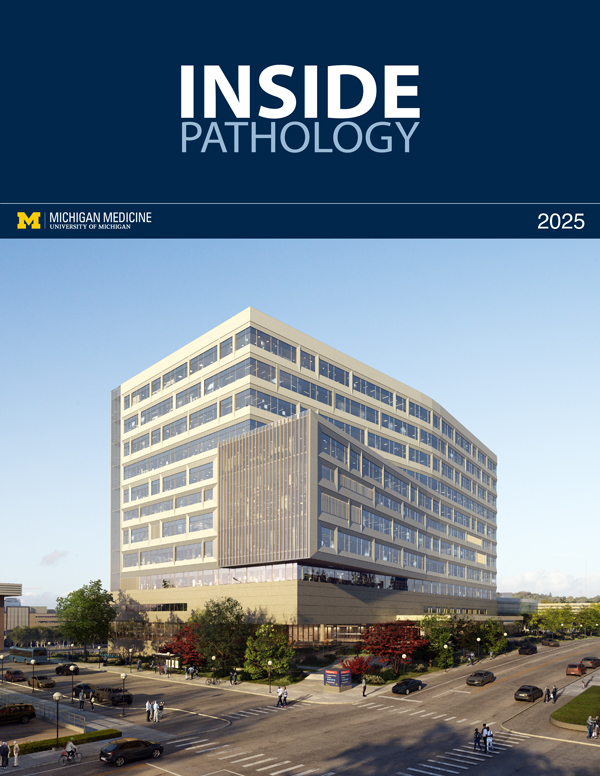The multi-faceted role of the SUV family of H3K9 methyltransferases
By Camren Clouthier | February 8 2021A new study from Drs. Andrew Muntean and Nirmalya Saha of the Department of Pathology's Muntean Lab was just published in Biochim et Biophysica (BBA) Reviews on Cancer. The research project sheds light on the multi-faceted role of the SUV family of H3K9 methyltransferases in carcinogenesis and within cancer progression.
Dr. Muntean explains that research from the past decade had previously established that alterations to the epigenetic landscape can contribute to oncogenic transformation.
 "Histone H3K9 methylation is one epigenetic modification predominantly involved in the repression of gene expression and compaction of DNA complexes. H3K9 methylation is catalyzed by the SUV family of enzymes, which have been implicated in cancer," he notes. "In fact, pharmacologic inhibition of the SUV family of enzymes is currently being investigated as a therapeutic intervention in several cancer settings. However, this line of defense may be complicated by the diverse functions of these enzymes in various tissues."
"Histone H3K9 methylation is one epigenetic modification predominantly involved in the repression of gene expression and compaction of DNA complexes. H3K9 methylation is catalyzed by the SUV family of enzymes, which have been implicated in cancer," he notes. "In fact, pharmacologic inhibition of the SUV family of enzymes is currently being investigated as a therapeutic intervention in several cancer settings. However, this line of defense may be complicated by the diverse functions of these enzymes in various tissues."
For example, while the SUV enzyme SETDB1 possesses oncogenic roles in melanoma, it can suppress leukemogenesis. Furthermore, dual roles as onco-gene and onco-suppressor have been identified in the same tissue.
"Our study investigates the functions of the SUV family of enzymes in different cancer models and their mechanisms of action. Our goal is to demonstrate the complex functions of the SUV family of enzymes in different tissues and cancer biology. We also address their mechanisms of action that contribute to their roles as an oncogene or tumor-suppressor in cancer models."
The team also discussed molecular mechanisms regulating H3K9 methyltransferases and their influence on cancer. They explored the impact of H3K9 methylation on therapy induced resistance in carcinoma. Converging evidence point to multi-faceted roles for H3K9 methyltransferases in development and cancer that encourages a deeper understanding of these enzymes to inform novel therapy.
"We anticipate this work will be important to a broad section of the scientific community focused on understanding the role of epigenetics in cancer research," Muntean concludes.
—
The full publication in Biochim et Biophysica (BBA) Reviews on Cancer is available here.
 ON THE COVER
ON THE COVER
 ON THE COVER
ON THE COVER
 ON THE COVER
ON THE COVER
 ON THE COVER
ON THE COVER
 ON THE COVER
ON THE COVER
 ON THE COVER
ON THE COVER
 ON THE COVER
ON THE COVER
 ON THE COVER
ON THE COVER
 ON THE COVER
ON THE COVER
 ON THE COVER
ON THE COVER
 ON THE COVER
ON THE COVER
